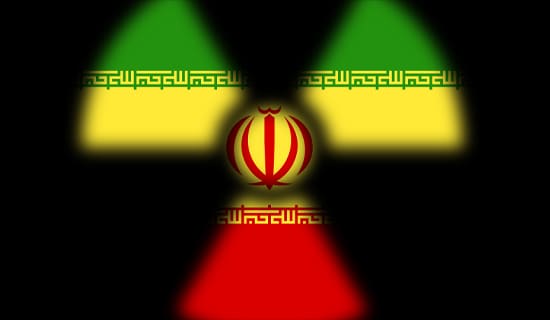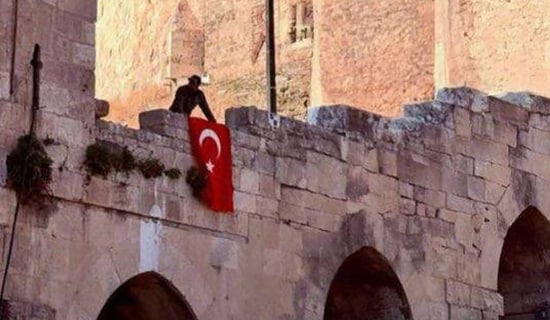On December 10, 2018, two Russian Tu-160 strategic bombers landed in Venezuela. "Two Tu-160 strategic bombers, an An-124 heavy military transport plane and an Il-62 long-haul plane of the Russian aerospace forces that took off from aerodromes in Russia have landed at the Maiquetia 'Simon Bolivar' International Airport of the Venezuelan capital city," the Russian Defense ministry said.[1]
Subsequently, the Venezuelan Defense Minister Vladimir Padrino Lopez divulged that the Russian warplanes that had arrived in Venezuela took part in joint flights with the Venezuela aviation.[2] The Russian Ambassador to Venezuela Vladimir Zaemsky added that military-technical cooperation between the two countries is developing "very fruitfully."[3]
It is worth noting that the flight shortly followed the December 5, 2018 talks between Russian President Vladimir Putin and Venezuelan President Nicolas Maduro hosted by Putin at his Novo-Ogaryovo residence. During the meeting Putin stressed that Russia condemns any attempts to change the situation by force in Venezuela. In turn, Maduro stated: "We have found the point that helps us survive and launch a rather full, comprehensive economic program that fully complies with the economic relations between Russia and Venezuela."[4]
Commenting on Russia's decision to send bombers to Venezuela, Secretary of State Mike Pompeo tweeted: "Russia's government has sent bombers halfway around the world to Venezuela. The Russian and Venezuelan people should see this for what it is: two corrupt governments squandering public funds, and squelching liberty and freedom while their people suffer."[5]
On December 22, the Russian media outlet Nezavisimaya Gazeta reported that Moscow is gearing up to establish a long-term military presence in Latin America and the Tu-160 strategic bombers visit to Venezuela is part of this plan. In a conversation with Nezavisimaya Gazeta, Colonel Eduard Rodyukov, a corresponding member of the Academy of Military Sciences, added that "the arrival of Russia’s Tu-160 strategic bombers to Central America is kind of a signal to Trump to make him realize that abandoning nuclear disarmament treaties will have a boomerang effect."[6]
A dissenting view is offered by another Russian military expert, Andrei Frolov, Editor-in-Chief of Arms Export magazine. Per Frolov a Russian military base in Venezuela makes no sense, since its goals and objectives would not be very clear. "It will also be vulnerable to American actions during a possible conflict, and it will not be able to withstand long enough against the American armed forces.".
Below is Frolov's op-ed, published in the Valdai Club website:[7]

(Source: Venezuelanalysis.com)
"On December 10, 2018, two Russian Tu-160 strategic bombers landed in Venezuela after a long-distance flight from their home base in Russia. Sometime before their arrival, an An-124-100 super-heavy military transport aircraft with military spare parts and equipment, as well as an Il-62M passenger aircraft with technical personnel, arrived in Venezuela. Having stayed there for a couple of days, the bombers returned to their homeland, and on the way home they were accompanied by F-16A and Su-30MK2V fighters of the Venezuelan Air Force as a honorary escort.
"This is the third visit of the Russian strategic aviation to this Latin American country after similar flights in 2008 and 2013. In a sense, this is quite a routine event. Despite this, the flight got reaction from US leaders, who spoke in a somewhat derogatory tone about the wisdom of this flight on the background of difficult economic conditions in the two countries.
"But, in fact, we are talking about a purely demonstrational flight which cannot have any practical dimension. Tu-160 or any other aircraft from the long-range aviation structure of the Russian Aerospace Forces do not need permanent presence in Venezuela, since they would be vulnerable to a potential American strike. Moreover, the range of their weapons’ destructive power enables them to fulfill different tasks using Russian airfields. This year, for the first time in the Tu-160’s history, the bombers landed in the Vorkuta airport, expanding the geography of possible sites from which they can fly.
"The deployment of a Russian military base in Venezuela does not make any sense, since its goals and objectives are not very clear. It will also be vulnerable to American actions during a possible conflict, and it will not be able to withstand long enough against the American armed forces. The issue of supplies for a large Russian military group in Latin America remains open, since even deliveries to the Russian contingent in Syria caused a serious strain in both Russian military transport aviation and the navy. Moreover, in the case of Venezuela, Russian airplanes will need intermediate airfields for refueling, and the possibility of gaining access to them seems to be ephemeral. The same arguments apply to Cuba.
"However, this does impede the deployment in these countries of individual Russian military facilities manned by a small number of specialists. First of all, we can talk about electronic intelligence and communications centers. But their establishment is not a priority.
"Thus, no analogy can be drawn between the Soviet 'Anadyr' operation, when more than 40 thousand servicemen were transferred to Cuba, and the one-time flight of two bombers. Even the opening of Russian military facilities in the region cannot be compared to the Cuban precedent and can hardly cause escalation in the US-Russian relations. But it may well serve as a propaganda scarecrow."








